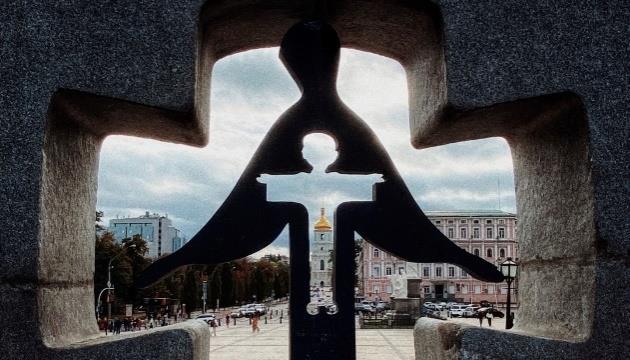
Ukraine Commemorates Holodomor Victims
In the 20th century, Ukrainians endured three famines: in 1921-1923, 1932-1933, and 1946-1947. The famine of 1932–1933 was the most devastating and is recognized as genocide against the Ukrainian people carried out by the Stalinist regime.
The Holodomor was preceded by the forced collectivization of farms, the dispossession of wealthier peasants, grain requisition campaigns, and mass terror in rural areas. The famine terror that gripped Ukraine for 22 months was a deliberate and systematic policy of the Stalinist government, whose strategy and tactics were implemented beginning in 1928. This punitive and repressive operation targeted the subjugation of Ukrainian peasants and the destruction of independent farms – the socioeconomic foundations of the Ukrainian nation.
Read also: Russia's war against Ukraine pursues genocidal intent, experts claimAfter widespread repression against Ukrainian intellectuals and clergy, the peasantry became the next target of the regime.
Several events preceded the mass famine. On November 18, 1932, the Central Committee of the Communist Party (Bolsheviks) of Ukraine issued a resolution "On measures to strengthen grain procurement," which introduced penalties for failing to meet grain quotas. Farms were punished with "natural fines," meaning the confiscation of 15 months' worth of meat. Potatoes and lard were later added to the list of confiscated foodstuffs, and by the end of the year the fines expanded to include nonperishable goods. Another resolution issued that same day – "On the elimination of counterrevolutionary nests and the destruction of kulak groups" – allowed authorities to seize grain from peasants on charges of "counterrevolutionary crimes."
Just days later, on November 26, an order by the People's Commissar of Justice and the Prosecutor General of the Ukrainian SSR emphasized that "repression is one of the most powerful means of overcoming class resistance to grain procurement." The artificially imposed famine thus became a thoroughly designed and carefully disguised punitive operation.
First, authorities confiscated the grain harvested by Ukrainian peasants, and then – through additional "natural fines" and searches – stripped them of all remaining food stocks. In December 1932, food trade was banned in 82 districts of Ukraine, and supplies of industrial goods were halted. In early 1933, residents were denied any hope of escape when the regime prohibited leaving famine-stricken Ukraine. Deprived of bread, peasant families resorted to eating various substitutes: corn cobs and stalks, sifted chaff, dried straw, rotten melons and beets, potato peels, acacia pods, and even ground bark and tree leaves.
The famine terror that lasted 22 months claimed, according to official data, around four million lives.
For decades, the topic of the Holodomor was taboo. Under the communist regime, even speaking about the famine was strictly forbidden. Research into the tragedy began only in the late 1980s.
According to the Law "On the Holodomor of 1932-1933 in Ukraine," adopted on November 28, 2006, the 1932-1933 famine is recognized as an act of genocide against the Ukrainian people, and its public denial is defined as "an insult to the memory of millions of victims of the Holodomor, a humiliation of the dignity of the Ukrainian people, and is unlawful."
A ruling of the Kyiv Court of Appeal on January 13, 2010, found Soviet leaders – Joseph Stalin, Vyacheslav Molotov, Lazar Kaganovich, Pavel Postyshev, Stanislav Kosior, Vlas Chubar, and Mendel Khatayevich – guilty of organizing the Holodomor in Ukraine.
Today, according to the Ukrainian Institute of National Remembrance, 29 countries have recognized the 1932-1933 Holodomor as genocide against the Ukrainian people at the parliamentary level, and 11 at the regional or municipal level. Several international organizations – including PACE, the European Parliament, and the Baltic Assembly – have also recognized it as genocide.
More than 90 years after the tragedy, Russia continues its attempts to erase Ukraine from the world map and destroy the Ukrainian people, culture, language, and history.
As is tradition, Ukrainians will light memorial candles in their homes today to honor the victims of the man-made famine. A nationwide moment of silence will be held at 16:00, and commemorative events will take place across the country.
Legal Disclaimer:
MENAFN provides the
information “as is” without warranty of any kind. We do not accept
any responsibility or liability for the accuracy, content, images,
videos, licenses, completeness, legality, or reliability of the information
contained in this article. If you have any complaints or copyright
issues related to this article, kindly contact the provider above.


















Comments
No comment